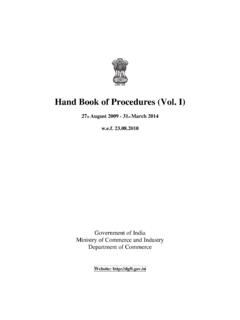Transcription of Foreign direct investment: does it matter? A case …
1 Research in Business and Economics Journal Volume 10, October 2014 Foreign direct investment , Page 1 Foreign direct investment : does it matter ? a case for Zimbabwe Mike Nyamazana Sikwila, Chinhoyi University of Technology ABSTRACT The paper examines the factors that influence Foreign direct investment (FDI) inflows into Zimbabwe between 1980 and 2012. Over the period, the country experienced low levels of both domestic and Foreign direct investment leading to sluggish economic growth and high unemployment. The FDI that came into the country had a short life. Scant research has been undertaken to address the poor performance of FDI in the country. The paper differs from existing researches in that it considers individual country s investment priorities.
2 Based on the modified acceleration theory of investment and FDI theories, a regression equation using Eviews on annual time-series data obtained from the World Bank database was estimated. The results indicate that output, trade openness, political stability, domestic investment and inflation were significant factors that influenced FDI inflows into the country. The data used did not substantiate the hypothesis that indigenisation and property rights policies curtailed FDI inflows into Zimbabwe. Furthermore, the findings confirm the applicability of the acceleration theory of investment in Zimbabwe. The study contributes to the information dearth on direct investment determinants in Zimbabwe. The findings are expected to shed light to policy-makers in their efforts to attract direct investment , thereby boosting economic growth and employment.
3 Appropriate policy measures focused on aforesaid determinants of FDI are expected to attract investors. The study recommends that would-be FDI investors in developing countries consider joint ventures with the local investors and take into account the country s specific investment needs to ensure longevity of FDI in the host country. Keywords: Zimbabwe, FDI, economic growth, unemployment, acceleration theory Copyright statement: Authors retain the copyright to the manuscripts published in AABRI journals. Please see the AABRI Copyright Policy at Research in Business and Economics Journal Volume 10, October 2014 Foreign direct investment , Page 2 INTRODUCTION Foreign direct investment (FDI) can be viewed as the growth rate in capital inflows that add over time to fixed capital stock of the home country.
4 This capital formation was expected to boost production and output of the wider economy. Globalization has reduced restrictions on world trade and this has had a positive effect on Foreign direct investment in the world (UNCTAD, 2014). Both developed and developing countries compete globally for scarce FDI. The countries that manage to attract FDI are expected to improve employment, economic growth and development (UNCTAD, 2014). However, less developing countries have received relatively less of the FDI inflows compared to developed countries, for example, global trends on FDI indicate that FDI increased by nine percent in the period between 2012 and 2013 (UNCTAD, 2014). Africa had an increase of four percent in the same period (UNCTAD, 2014).
5 The increase indicates the importance of FDI to economic growth and development. Among developing countries, Africa, particularly Sub-Saharan Africa (SSA) of which Zimbabwe belongs, has had relatively insignificant FDI compared to Latin America and Asian countries (Mahembe, and Odhiambo, 2014; UNCTAD, 2014). Although Sub-Saharan Africa experienced an increase in FDI from US$ billion in 1990 to US$ billion in 2000, and further increase to US$ billion by 2008 (UNCTAD, 2014), Zimbabwe has not been able to attract significant FDI inflows despite the fact that the country was rich in minerals that include: gold, platinum and diamonds that normally attract resource-seeking FDI inflows. Also, investment promotion and facilitation by the Zimbabwe investment centre has been relatively unsuccessful in enticing Foreign investors (ZimStats, 2013).
6 In the 1990s the county recorded FDI of US$950 million, however, by 2012 only US$400 million was recorded (RBZ, 2014; ZimStats, 2013). The decline in FDI was reflected in the poor real economic growth rate over the period between 2000 and 2011 which averaged negative five percent (Index Mundi, 2014). Zimbabwe s lack of adequate investment hinders employment, and thereby negatively influencing the country s wider economic growth and development. Unemployment in Zimbabwe was approximately 80% in 2012 (Biti, 2013, CSO, 2005) leading to a grip of poverty for the majority of the population. The increase in FDI inflows, therefore, was expected to augment domestic investment , and thereby contribute to employment opportunities for residents in the host country.
7 This was particularly true for resource-seeking FDI inflows which are labour intensive. The determinants of FDI could be explained in two different ways which have not been explored in existing literature. On one hand, (which was prevalent in the literature) FDI was analysed on the multinational enterprises (MNE) and/or would-be investors point of view as to what should the host country do in order to attract FDI. In fact, in the literature the majority of developed countries studies focus on MNEs perspective (see, for example, Sethi, Guisinger and Berg, 2003, Dunning, 1980, 1981). On the other hand, FDI could be analysed in the home country s perspective in an effort to answer the question why the host countries should accept MNEs investment .
8 We are looking at a host country s perspective, such as what kind of investment is required by the host country, and in what sectors of the economy. The study s premise is that MNEs and would-be investors should put the host country s priorities first and see how these dovetail to their investment requirements if their longevity in host countries is to be guaranteed. In trying to answer the question what specific factors that are expected to influence FDI in a particular country such as Zimbabwe, the paper examines determinants of FDI that were acceptable to the host country. This approach is justified in that different countries are in different stages of development, and thereby have different investment needs, types, forms and quantities of FDI.
9 On the contrary, literature on FDI has ignored the misalignment between the host countries prerequisite for FDI to flow Research in Business and Economics Journal Volume 10, October 2014 Foreign direct investment , Page 3 into the country and that of MNEs prerequisite for FDI to flow into the country. This analysis makes the assumption that for resource-seeking FDI to take place, the host country would want to share at an agreed proportion the ownership (O) (Dunning, 2001) advantage with the MNEs with respect to both natural resource and tangible/intangible factors of production possessed by the MNEs, which accounts to some kind of indigenisation policy (Karabay, 2010; Katrak, 1983). The indigenisation policy has been implemented in countries such as Norway, Sweden, Switzerland, Finland, France, USA and Canada (Karabay, 2010: 218).
10 The policy was expected to ensure longevity of FDI in the host countries. Katrak (1983) describe indigenisation policy as a prerequisite that the host country require on Foreign investors to share ownership with indigenous investors. The overall purpose of this study is to explore the impact of factors that influence the inflow of FDI into Zimbabwe. The problem was that the country has received low levels of FDI between 1980 and 2011. Also, the FDI that finds its way into the country has a short life. The lack of fixed investment has led to sluggish economic growth and high levels of unemployment (Biti, 2013, ZimStats, 2012, 2013; Chingarande et al., 2012; Manda, 2014). The objective of the study was to identify policy variables that are expected to attract more Foreign direct investment into Zimbabwe and ensure its permanence.
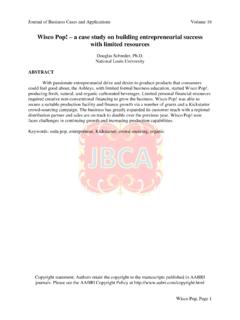
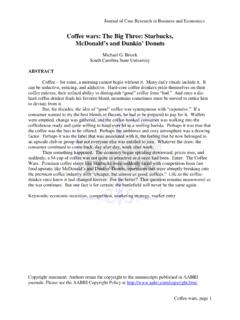
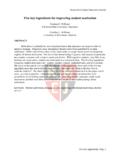
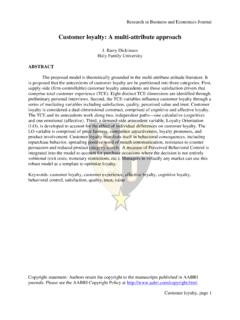
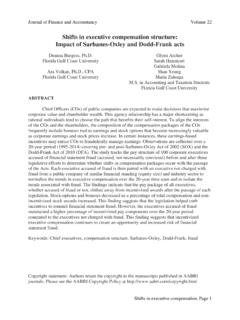
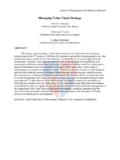
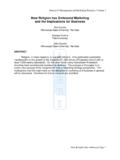
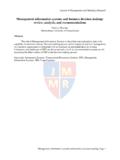
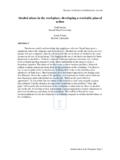
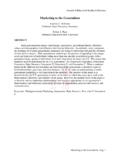

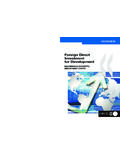
![th March, 1947] - Federal Investigation Agency](/cache/preview/d/1/3/9/2/d/7/0/thumb-d1392d701df9ad3ed334d14a9f691a5f.jpg)

